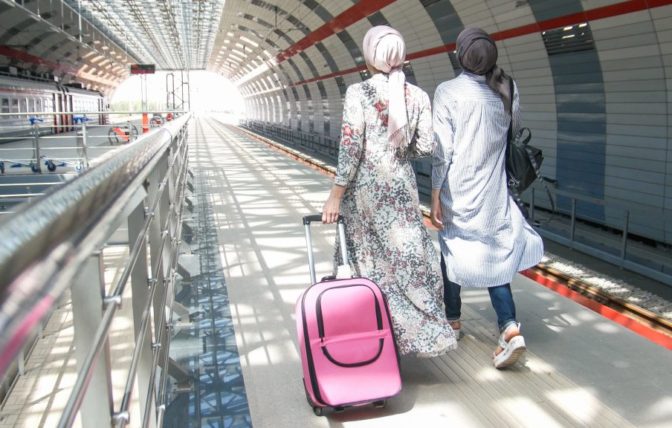
 "
"

 "
"

Increasing Muslim Population: The global Muslim population is projected to grow significantly in the coming years. According to the Pew Research Center, the number of Muslims worldwide is expected to increase by 70% between 2010 and 2050. This demographic growth directly contributes to the rising demand for Muslim travel.
Economic Growth in Muslim Majority Countries: Many Muslim-majority countries are experiencing economic growth and development, leading to an expansion of the middle class. As disposable incomes rise, more Muslims have the financial means to engage in travel. This includes both domestic travel within their home countries and international travel to other destinations.
Halal Tourism: Halal tourism refers to travel activities that cater to the specific needs and preferences of Muslim travelers, adhering to Islamic principles and practices. This includes providing halal food options, prayer facilities, gender-segregated accommodations, and other services that comply with Islamic requirements. The growth of halal tourism has made it easier and more appealing for Muslim travelers to explore new destinations while adhering to their religious obligations.
Awareness and Accessibility: With the proliferation of travel information and online resources, Muslim travelers now have greater awareness of travel opportunities and options that cater to their needs. Travel agencies, hotels, and tourism boards have also recognized the potential of the Muslim travel market and are actively promoting Muslim-friendly destinations and services. As a result, there has been an increase in the availability and accessibility of facilities and services that accommodate Muslim travelers.
Religious Tourism: Islamic heritage tourism plays a significant role in driving Muslim travel. Muslims often undertake religious pilgrimages, such as Hajj and Umrah to Mecca, or visit historical sites associated with Islamic history and culture. These religious and cultural experiences attract a large number of Muslim travelers, contributing to the overall growth of Muslim travel.
Social Media and Influencer Marketing: The rise of social media platforms and influencer marketing has had a profound impact on the travel industry, including Muslim travel. Muslim travelers are increasingly sharing their travel experiences, recommendations, and tips on social media, inspiring others within their community to explore new destinations. This digital word-of-mouth has contributed to the growth of Muslim travel and created a sense of community and shared experiences among Muslim travelers.
In conclusion, the growth of the Muslim travel market can be attributed to factors such as the increasing Muslim population, economic growth in Muslim-majority countries, the development of halal tourism, improved awareness and accessibility, religious tourism, and the influence of social media and influencers. As these trends continue, it is expected that Muslim travel will continue to expand in the future.